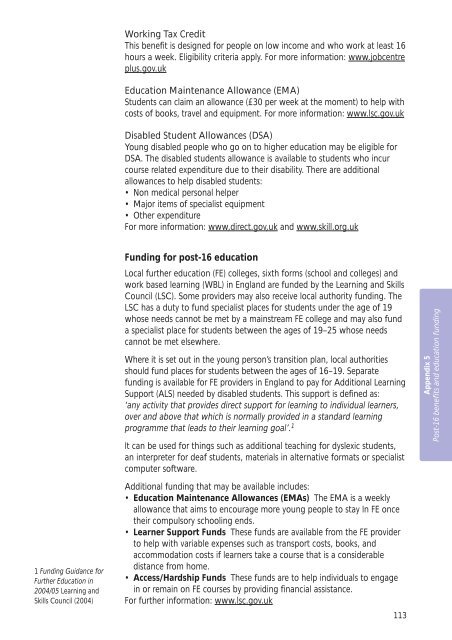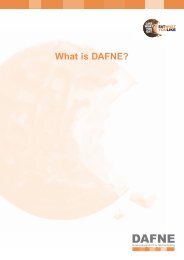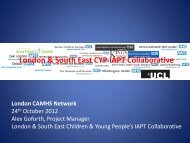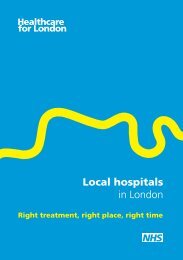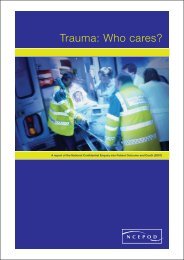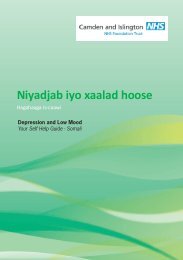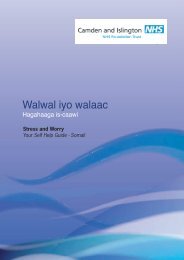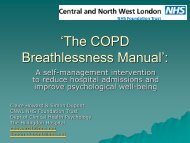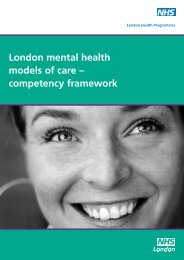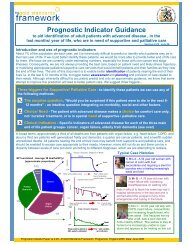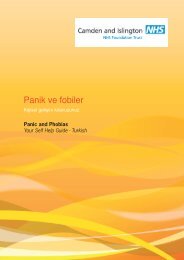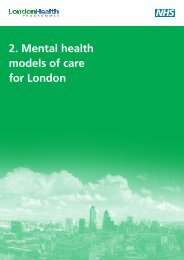A Transition Guide for All Services - Transition Information Network
A Transition Guide for All Services - Transition Information Network
A Transition Guide for All Services - Transition Information Network
- No tags were found...
Create successful ePaper yourself
Turn your PDF publications into a flip-book with our unique Google optimized e-Paper software.
Working Tax CreditThis benefit is designed <strong>for</strong> people on low income and who work at least 16hours a week. Eligibility criteria apply. For more in<strong>for</strong>mation: www.jobcentreplus.gov.ukEducation Maintenance <strong>All</strong>owance (EMA)Students can claim an allowance (£30 per week at the moment) to help withcosts of books, travel and equipment. For more in<strong>for</strong>mation: www.lsc.gov.ukDisabled Student <strong>All</strong>owances (DSA)Young disabled people who go on to higher education may be eligible <strong>for</strong>DSA. The disabled students allowance is available to students who incurcourse related expenditure due to their disability. There are additionalallowances to help disabled students:• Non medical personal helper• Major items of specialist equipment• Other expenditureFor more in<strong>for</strong>mation: www.direct.gov.uk and www.skill.org.ukFunding <strong>for</strong> post-16 educationLocal further education (FE) colleges, sixth <strong>for</strong>ms (school and colleges) andwork based learning (WBL) in England are funded by the Learning and SkillsCouncil (LSC). Some providers may also receive local authority funding. TheLSC has a duty to fund specialist places <strong>for</strong> students under the age of 19whose needs cannot be met by a mainstream FE college and may also funda specialist place <strong>for</strong> students between the ages of 19–25 whose needscannot be met elsewhere.Where it is set out in the young person’s transition plan, local authoritiesshould fund places <strong>for</strong> students between the ages of 16–19. Separatefunding is available <strong>for</strong> FE providers in England to pay <strong>for</strong> Additional LearningSupport (ALS) needed by disabled students. This support is defined as:‘any activity that provides direct support <strong>for</strong> learning to individual learners,over and above that which is normally provided in a standard learningprogramme that leads to their learning goal’. 1It can be used <strong>for</strong> things such as additional teaching <strong>for</strong> dyslexic students,an interpreter <strong>for</strong> deaf students, materials in alternative <strong>for</strong>mats or specialistcomputer software.Appendix 5Post-16 benefits and education funding1 Funding Guidance <strong>for</strong>Further Education in2004/05 Learning andSkills Council (2004)Additional funding that may be available includes:• Education Maintenance <strong>All</strong>owances (EMAs) The EMA is a weeklyallowance that aims to encourage more young people to stay In FE oncetheir compulsory schooling ends.• Learner Support Funds These funds are available from the FE providerto help with variable expenses such as transport costs, books, andaccommodation costs if learners take a course that is a considerabledistance from home.• Access/Hardship Funds These funds are to help individuals to engagein or remain on FE courses by providing financial assistance.For further in<strong>for</strong>mation: www.lsc.gov.uk113Appendix 5


